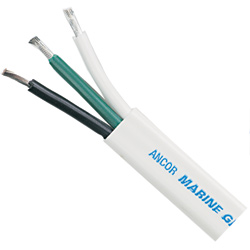- Joined
- May 8, 2014
- Messages
- 142
- Reaction score
- 38
- Points
- 28
Pulled out my nasty old DC-440 yesterday in anticupation of replacing it with a CR49 with AC/DC...
Anyone have suggestions on the gauge wire for power? Run from the breaker box looks like we'll under 10 feet...
Also, what rating for the breaker I'll put in the ACC slot? 10 Amps?
Anyone have suggestions on the gauge wire for power? Run from the breaker box looks like we'll under 10 feet...
Also, what rating for the breaker I'll put in the ACC slot? 10 Amps?


